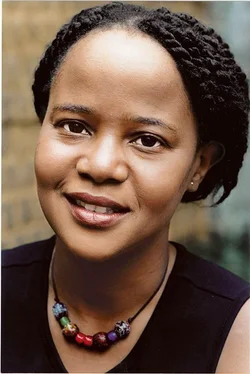Edwidge Danticat - Breath, Eyes, Memory
Здесь есть возможность читать онлайн «Edwidge Danticat - Breath, Eyes, Memory» весь текст электронной книги совершенно бесплатно (целиком полную версию без сокращений). В некоторых случаях можно слушать аудио, скачать через торрент в формате fb2 и присутствует краткое содержание. Жанр: Детектив, на английском языке. Описание произведения, (предисловие) а так же отзывы посетителей доступны на портале библиотеки ЛибКат.
- Название:Breath, Eyes, Memory
- Автор:
- Жанр:
- Год:неизвестен
- ISBN:нет данных
- Рейтинг книги:3 / 5. Голосов: 1
-
Избранное:Добавить в избранное
- Отзывы:
-
Ваша оценка:
- 60
- 1
- 2
- 3
- 4
- 5
Breath, Eyes, Memory: краткое содержание, описание и аннотация
Предлагаем к чтению аннотацию, описание, краткое содержание или предисловие (зависит от того, что написал сам автор книги «Breath, Eyes, Memory»). Если вы не нашли необходимую информацию о книге — напишите в комментариях, мы постараемся отыскать её.
Breath, Eyes, Memory — читать онлайн бесплатно полную книгу (весь текст) целиком
Ниже представлен текст книги, разбитый по страницам. Система сохранения места последней прочитанной страницы, позволяет с удобством читать онлайн бесплатно книгу «Breath, Eyes, Memory», без необходимости каждый раз заново искать на чём Вы остановились. Поставьте закладку, и сможете в любой момент перейти на страницу, на которой закончили чтение.
Интервал:
Закладка:
"This is Sophie," my mother said through the holes in the thick glass. "She is the one who has given you so much business over the years."
The lady smiled as she took my mother's money and the package. I kept feeling like there was more I wanted to send to Tante Atie. If I had the power then to shrink myself and slip into the envelope, I would have done it.
I watched as the lady stamped our package and dropped it on top of a larger pile. Around us were dozens of other people trying to squeeze all their love into small packets to send back home.
After we left, my mother stopped at a Haitian beauty salon to buy some castor oil for her hair. Then we went to a small boutique and bought some long skirts and blouses for me to wear to school. My mother said it was important that I learn English quickly. Otherwise, the American students would make fun of me or, even worse, beat me. A lot of other mothers from the nursing home where she worked had told her that their children were getting into fights in school because they were accused of having HBO-Haitian Body Odor. Many of the American kids even accused Haitians of having AIDS because they had heard on television that only the "Four Hs" got AIDS-Heroin addicts, Hemophiliacs, Homosexuals, and Haitians.
I wanted to tell my mother that I didn't want to go to school. Frankly, I was afraid. I tried to think of something to keep me from having to go. Sickness or death were probably the only two things that my mother would accept as excuses.
A car nearly knocked me out of my reverie. My mother grabbed my hand and pulled me across the street. She stopped in front of a pudgy woman selling rice powder and other cosmetics on the street.
"Sak passé, Jacqueline?" said my mother.
"You know," answered Jacqueline in Creole. "I'm doing what I can."
Jacqueline was wearing large sponge rollers under a hair net on her head. My mother brought some face cream that promised to make her skin lighter.
All along the avenue were people who seemed displaced among the speeding cars and very tall buildings. They walked and talked and argued in Creole and even played dominoes on their stoops. We found Tante Atie's lemon perfume in a botanica shop. On the walls were earthen jars, tin can lamps, and small statues of the beautiful mulâtresse, the goddess and loa Erzulie.
We strolled through long stretches of streets where merengue blared from car windows and children addressed one another in curses.
The outdoor subway tracks seemed to lead to the sky. Pebbles trickled down on us as we crossed under the tracks into another more peaceful neighborhood.
My mother held my hand as we walked through those quiet streets, where the houses had large yards and little children danced around sprinklers on the grass. We stopped in front of a building where the breeze was shaking a sign: MARC CHEVALIER, ESQUIRE.
When my mother rang the bell, a stocky Haitian man came to the door. He was a deep bronze color and very well dressed.
My mother kissed him on the cheek and followed him down a long hallway. On either side of us were bookshelves stacked with large books. My mother let go of my hand as we walked down the corridor. He spoke to her in Creole as he opened the door and let us into his office.
He leaned over and shook my hand.
"Marc Jolibois Francis Legrand Moravien Chevalier."
"Enchanté," I said.
I took a deep breath and looked around. On his desk was a picture of him and my mother, posed against a blue background.
"Are you working late?" my mother asked him.
"Where are you going?" he asked.
"We are just walking around," my mother said. "I am showing her what is where."
"Later, we'll go someplace," he said, patting a folder on his desk.
My mother and I took a bus back to our house. We were crowded and pressed against complete strangers. When we got home, we went through my suitcase and picked out a loose-fitting, high-collared dress Tante Atie had bought me for Sunday Masses. She held it out for me to wear to dinner.
"This is what a proper young lady should wear," she said.
That night, Marc drove us to a restaurant called Miracin's in Asbury Park, New Jersey. The restaurant was at the back of an alley, squeezed between a motel and a dry cleaner.
"Miracin's has the best Haitian food in America," Marc told me as we parked under the motel sign.
"Marc is one of those men who will never recover from not eating his monman's cooking," said my mother. "If he could get her out of her grave to make him dinner, he would do it."
"My mother was the best," Marc said as he opened the car door for us.
There was a tiny lace curtain on the inside of the door. A bell rang as we entered. My mother and I squeezed ourselves between the wall and the table, our bodies wiping the greasy wallpaper clean.
Marc waved to a group of men sitting in a corner loudly talking politics. The room was packed with other customers who shouted back and forth adding their views to the discussion.
"Never the Americans in Haiti again," shouted one man. "Remember what they did in the twenties. They treated our people like animals. They abused the konbit system and they made us work like slaves."
"Roads, we need roads," said another man. "At least they gave us roads. My mother was killed in a ferry accident. If we had roads, we would not need to put crowded boats into the sea, just to go from one small village to another. A lot of you, when you go home, you have to walk from the village to your house, because there are no roads for cars."
"What about the boat people?" added a man from a table near the door. "Because of them, people can't respect us in this country. They lump us all with them."
"All the brains leave the country," Marc said, adding his voice to the mêlée.
"You are insulting the people back home by saying there's no brains there," replied a woman from a table near the back. "There are brains who stay."
"But they are crooks," Marc said, adding some spice to the argument.
"My sister is a nurse there with the Red Cross," said the woman, standing up. "You call that a crook? What have you done for your people?"
For some of us, arguing is a sport. In the marketplace in Haiti, whenever people were arguing, others would gather around them to watch and laugh at the colorful language. People rarely hit each other. They didn't need to. They could wound just as brutally by cursing your mother, calling you a sexual misfit, or accusing you of being from the hills. If you couldn't match them with even stronger accusations, then you would concede the argument by keeping your mouth shut.
Marc decided to stay out of the discussion. The woman continued attacking him, shouting that she was tired of cowardly men speaking against women who were proving themselves, women as brave as stars out at dawn.
My mother smiled at the woman's colorful words. It was her turn to stand up and defend her man, but she said nothing. Marc kept looking at her, as if waiting for my mother to argue on his behalf, but my mother picked up the menu, and ran her fingers down the list of dishes.
My mother introduced me to the waiter when he came by to take her order. He looked at us for a long time. First me, then my mother. I wanted to tell him to stop it. There was no resemblance between us. I knew it.
It was an eternity before we were served. Marc complained about his boudin when it came.
"I can still taste the animal," he said
"What do you expect?" my mother asked. "It is a pig's blood after all."
"It's not well done," he said, while raising the fork to his mouth. "It is an art to make boudin. There is a balance. At best it is a very tight kind of sausage and you would never dream of where it comes from."
"Who taught you to eat this way?" my mother asked.
Читать дальшеИнтервал:
Закладка:
Похожие книги на «Breath, Eyes, Memory»
Представляем Вашему вниманию похожие книги на «Breath, Eyes, Memory» списком для выбора. Мы отобрали схожую по названию и смыслу литературу в надежде предоставить читателям больше вариантов отыскать новые, интересные, ещё непрочитанные произведения.
Обсуждение, отзывы о книге «Breath, Eyes, Memory» и просто собственные мнения читателей. Оставьте ваши комментарии, напишите, что Вы думаете о произведении, его смысле или главных героях. Укажите что конкретно понравилось, а что нет, и почему Вы так считаете.

![Корнелл Вулрич - Eyes That Watch You [= The Case of the Talking Eyes]](/books/32103/kornell-vulrich-eyes-that-watch-you-the-case-of-thumb.webp)










